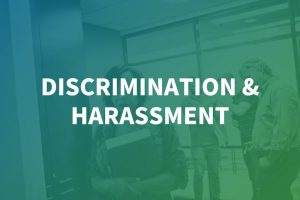Insubordination and Employee Discipline
With some employees, it isn’t a matter of ability; it’s a matter of attitude. And while you can’t control someone’s horrible personality, you can decide how you’re going to respond.
Use these scripts and strategies to confront problem employees and effectively manage employee discipline so you can bring motivation back to the forefront of your workday.
How do I legally discipline an employee?
As an employer, you have the right to manage your workplace. You have wide discretion in what sort of disciplinary system you want to use. You can use a point system, a progressive disciplinary system, or no system at all.
Of course, no matter what system you choose, you must be consistent and apply the rules in a non-discriminatory way. Judges want to see that you acted fairly and honestly.
Courts compare how you treat similarly situated employees being punished for the same offense. They expect that if you suspend a cashier for a $75 drawer shortage, you suspend every cashier with a similar shortage.
On the other hand, if one of those cashiers continues to show shortages, then you can punish him more harshly. The cashiers are then not similarly situated. The key is to document every disciplinary offense as it happens. That lets you distinguish between seemingly similarly situated workers.
How do I write up an employee?
Before you issue any discipline, consult your company’s disciplinary rules. This includes providing an oral warning or making notes in an “informal” supervisor file. You should always follow the rules outlined in your disciplinary program.
If your organization doesn’t have a formal disciplinary program, consult with your supervisor before doing anything unless the matter is urgent. For example, if two employees are involved in a heated argument with physical contact, you must act immediately to separate the two.
You could send both home and then consult the disciplinary policy. Better yet, make sure all your supervisors and managers are trained in “what if” disciplinary scenarios.
What is considered insubordination in the workplace?
Generally, insubordination is the willful defiance of authority. There is no strict legal definition that applies to all situations and all employers.
Employers may want to define what it means specifically in their organization. Refusal to perform work a supervisor orders, shouting and arguing with a supervisor, or other uncooperative acts are common examples. Your disciplinary policy should include these and other examples.
Not every act you may consider insubordination should result in discipline. Some insubordination may be protected activity under employment laws.
For example, refusing a directive to fire a worker for an illegal, discriminatory reason may be a protected activity. Punishing that refusal could then trigger a retaliation lawsuit.
Refusing to perform a criminal act is not insubordination. Nor is a refusal to ignore significant health and safety concerns. If a supervisor tells a subordinate not to report safety violations to OSHA, refusing to follow the order is not insubordination.
Can you fire someone for insubordination?
Yes. Just make sure that the act of defiance or refusal to follow a supervisor’s direction is insubordination and not a protected activity.
For example, going to the police to report illegal activity or OSHA to report safety hazards is a protected activity in most cases. Firing the worker who does so may be retaliation.
Since retaliation lawsuits are among the easiest wins for workers, be careful. Some states also have specific whistleblower laws that protect workers who go to authorities with workplace complaints.
Plus, refusing to stay out of a lawsuit against an employer and testifying against the employer is a protected activity, not insubordination.
Final note: Disciplining workers for shouting at supervisors, refusing a specific assignment, or being disrespectful, argumentative, and difficult is fine.
























